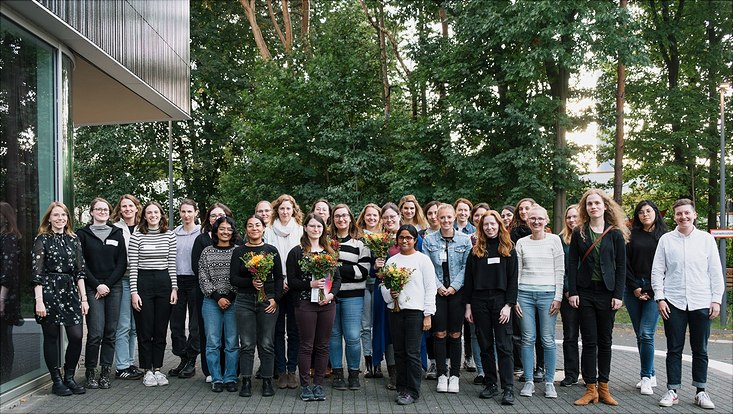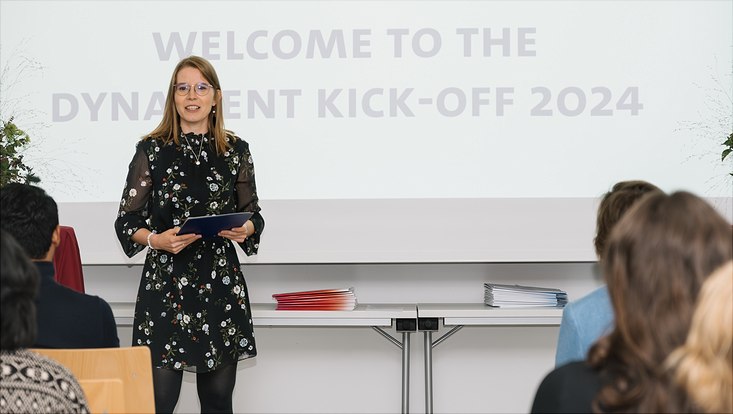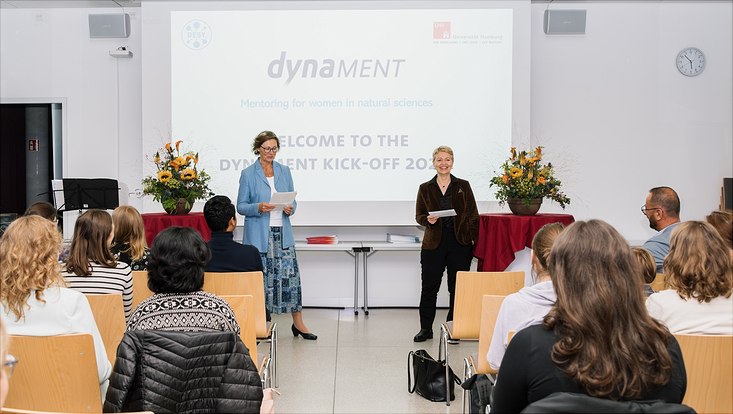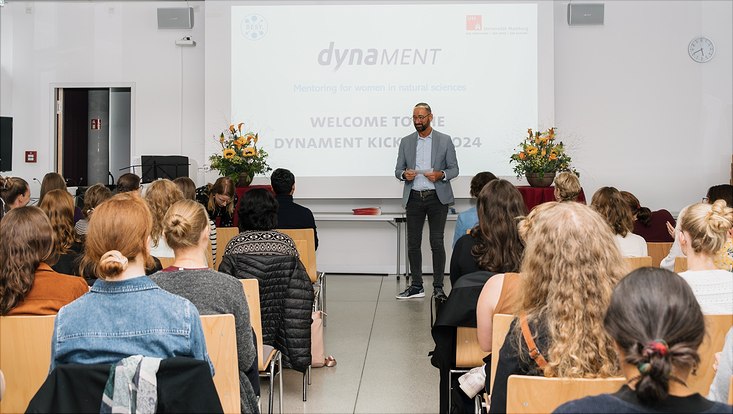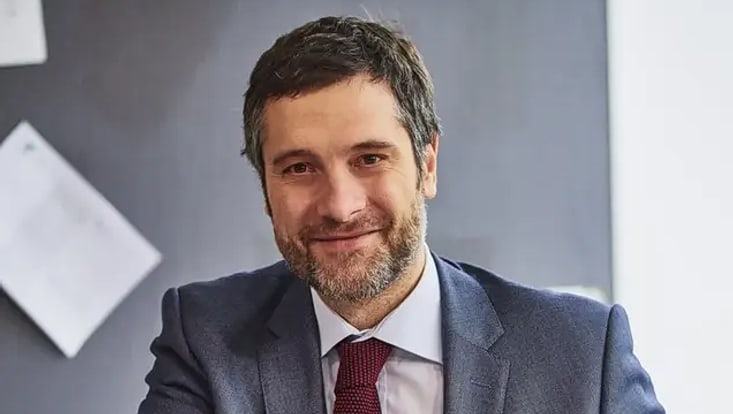Imaging of Matter
dynaMENT kick-off breaks new ground
30 October 2024
Daring to try something new, facilitating change - these are topics that come up again and again in the mentoring process. This year, the kick-off of the dynaMENT program at the beginning of October, at which the previous participants were given a ceremonial farewell and new participants were welcomed, also came up with some new features.
“We have a lot of discussions in the program about how to initiate change,” says Eileen Schwanold, project coordinator of dynaMENT - Mentoring for Women in Natural Sciences. It is therefore only logical to adapt the events in the program from time to time. The ninth kick-off event was therefore accompanied not only by feminist pop, but also by poetry slam-style performances on personal experiences and the development process on the career path. “Our participants have so many talents that go beyond research. We wanted to make this visible,” explains Schwanold.
An important part of the program was once again thanking the mentors, who are really committed to their mentees. Without this support, a program like dynaMENT would not be possible. Over a period of 12 months, the doctoral students are accompanied on their career path and receive confidential one-to-one advice from a personal mentor, who is selected in an individual matching process with the mentees. The second program line, dynaMENT advanced, lasts 24 months. At the end, all participants will receive a certificate, which will be presented in a graduation ceremony at the kick-off.
The patrons Dr. Angelika Paschke-Kratzin, Equal Opportunity Commissioner of the University of Hamburg, and Prof. Dr. Beate Heinemann, DESY Director of Particle Physics, as well as the Dean of the MIN Faculty Prof. Dr. Norbert Ritter, all spoke about how important the program is.
dynaMENT is an initiative of DESY, the University of Hamburg and the MIN faculty and is supported by the two Clusters of Excellence “CUI: Advanced Imaging of Matter” and “Quantum Universe”. Additional partners are the European XFEL, the Leibniz Institute for Virology (LIV), the Max Planck Institute for the Structure and Dynamics of Matter, the University Medical Center Hamburg-Eppendorf and the Bernhard-Nocht-Institute.

